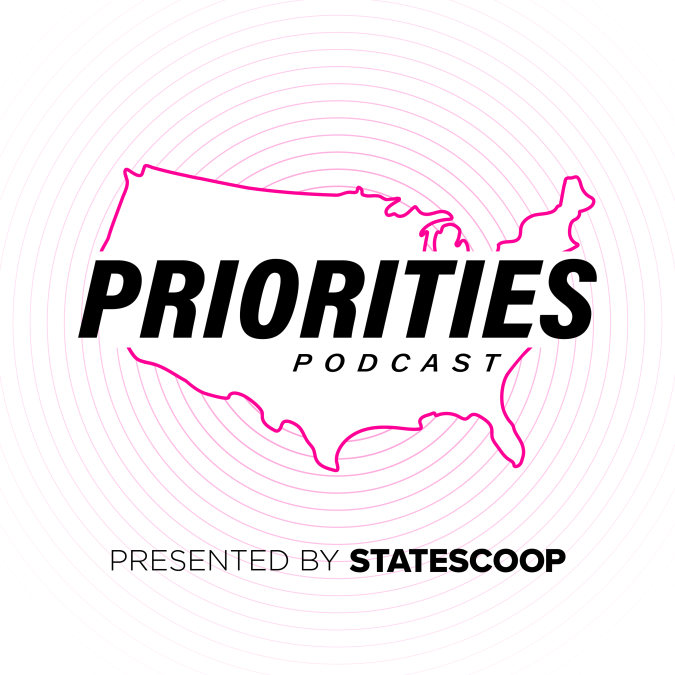
- Priorities Podcast
Minnesota used automation to rapidly process frontline worker benefits during COVID-19
On this week’s Priorities podcast, Minnesota Department of Labor and Industry Commissioner Nicole Blissenbach says automation played a key role in rolling out the state’s Frontline Worker Pay program during the COVID-19 pandemic.
By the time Gov. Tim Walz signed legislation establishing the program in April of 2022 — which delivered a one-time $500 benefit to each eligible frontline worker — the state departments involved had already researched how to quickly get a program of this size off the ground, Blissenbach says.
“We knew we needed to build in automation at basically every point in the process that we could, whether that was automation on checking to make sure people were eligible and there was an adjusted-gross-income threshold,” she says.
Blissenbach says automation helped the labor department quickly process 1.2 million applications and check for fraud. She says a one-stop application portal for benefits included identity verification and automatically pulled suspicious applications for closer review.
“Automation was the reason we were able to turn turn this program around in such quick timing,” she says. “I think from the day the contract with the IT vendor was signed to the launch of the application, I believe there were 20 business days in that timeframe, which is unheard of.”
For their work, the labor department and Minnesota IT Services, the state’s technology division, were this month named finalists in an annual awards program hosted by the National Association of State Chief Information Officers.
“While we’re proud of our work, we’re more proud of the fact that the State of Minnesota was able to put a program together that would give recognition to the workers that really got us through the the pandemic, oftentimes at their own risk,” Blissenbach says.
Also on the podcast, a high-school teacher from Loudoun County, Virginia, explains CyberSlam, an annual education and workforce conference that gives high schoolers a chance to meet cybersecurity professors and industry experts.
In the news this week:
Republican governors from 25 states are calling on President Biden to provide data on migrants entering the country through the U.S.-Mexico border. The governors say they’re requesting “honest, accurate, detailed information” about where migrants are living, asylum claim timelines, qualification rates and deportations.
California lawmakers are seeking new regulations on generative AI. State Sen. Scott Wiener is pushing legislation that would require large language models to meet security and transparency standards when they exceed a certain quantity of computing power.
Denise Reilly-Hughes, the former deputy secretary for Vermont’s Agency of Digital Services is the new statewide CIO. She spent more than 20 years in the private sector, including seven years at Microsoft and 15 years at the IT services firm PC Connection Services.
StateScoop’s Priorities podcast is available every Thursday. Listen more here.
If you want to hear more of the latest across the state and local government technology community, subscribe to the Priorities Podcast on Apple Podcasts, Google Podcasts, Soundcloud, and Spotify.

